Speaking on behalf of the Committee of Jews from Zarasai Living in Israel, Grisha Deitz deeply thanks Lithuanian Jewish Community chairwoman Faina Kukliansky for her concern and help in organizing a commemoration of the 75th anniversary of the destruction of the Jewish community of Zarasai, Lithuania, and for the presence of the rabbi at the ceremony in Krakynė Forest, where 8,000 Jews from the Zarasai region were murdered in 1941.
Lithuanians Can Now Learn about Israeli Literature
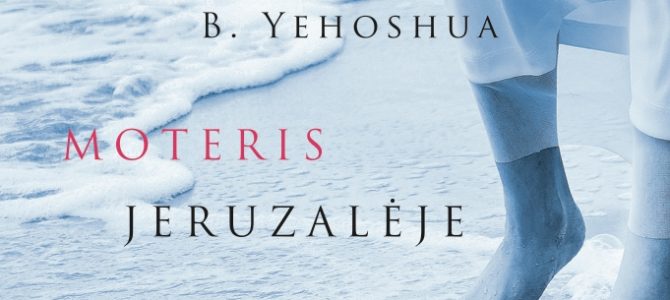
Lithuanian readers finally have the chance to read Israeli author A. B. Yehoshua’s “Woman in Jerusalem” in Lithuanian. This is a special opportunity to get acquainted with the high art produced by this author working in Hebrew.
The translation and publication is the fruit of the Israeli embassy, the Israeli-Lithuanian company Teva and the Lithuanian Cultural Agency. Israeli ambassador to Lithuania Amir Maimon said the successful cooperation will continue, and admitted it was hard for him to contain his emotions when speaking about the project. “Not so many years have passed since the great tragedy of the Lithuanian Jewish community. That was a time when Jewish books were destroyed and burned. It is my great honor to contribute to cooperation which has given exposure to Jewish Israeli authors and allowed the people of Lithuania to get to know and love them,” he said.
This is the first joint project between the embassy and the Sofoklis publishing house. They plan to continue by publishing a new translation of a book in Hebrew at least once per year.
Full story in Lithuanian here.
Discover Jewish Lithuania Mobile App
Artūras Taicas, chairman of the Ukmergė Jewish Community, reports there will be a public launch of a new mobile telephone application called Discover Jewish Lithuania on September 4 during a commemoration of Holocaust victims in Ukmergė. The app uses what’s called augmented reality to overlay graphics, text and information on mobile phone and tablet screens displaying live camera views. The app will aid in finding sites and then offers additional information about the location in one of five languages, Lithuanian, English, Hebrew, Polish and Russian. So far it works in Ukmergė, Vilnius, Kėdainiai, Joniškis, Žagarė, Valkininkai and the village of Degsniai.
Lithuanian Prime Minister Commemorates Holocaust Victims in Šeduva
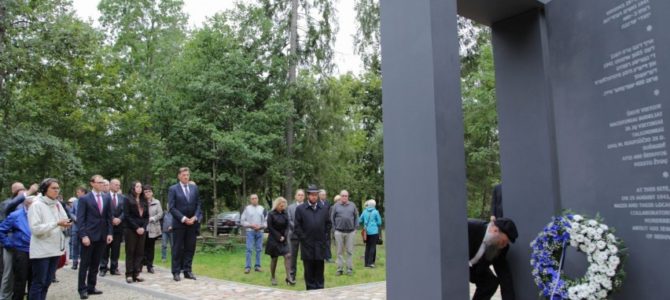
Vilnius, August 30, BNS–Lithuanian prime minister Algirdas Butkevičius Tuesday commemorated Lithuanian Holocaust victims at the Pakuteniai and Liaudiškiai mass murder sites and at the old Jewish cemetery in Šeduva, where kaddish was said for the dead.
“The Holocaust is our shared agony, our tragedy. It is our obligation that in the future never again would our human nature face such danger,” the prime minister was quoted in a Government press release. The PM said unfading memory is a duty to the dead and those who suffered.
The prime minister thanked the organizer, the Šeduva Jewish Memorial Foundation, and its representatives, who are conducting the Lost Shtetl project to commemorate Jewish life in Šeduva and the mass murder of that community in the forests near the town.
The Government’s internet site features photographs from the commemoration:
http://ministraspirmininkas.lrv.lt/lt/naujienos/premjeras-seduvoje-pagerbe-holokausto-auku-atminima
Holocaust Mass Grave in Vilnius Region Hidden by Bushes
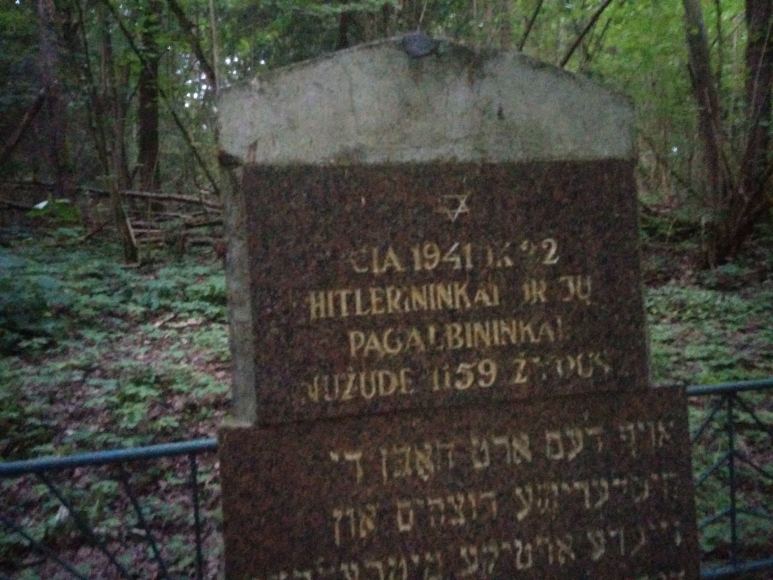
15min.lt
One thousand, one hundred and fifty-nine. Historians say that many Jews from Shumsk, Kena, Naujoji Vilnia and other towns in the area were murdered by the Special Unit in Vėliučioniai Forest just a few kilometers from Vilnius on September 22, 1941. Although the number of victims is truly terrifying, it’s very difficult to find the mass murder site itself. The Vilnius regional administration responsible for maintaining the site doesn’t think this is a real problem.
Full story in Lithuanian here.
Lithuanian Foreign Ministry Sends Reps to Holocaust Events
The Lithuanian Foreign Ministry reports sending representatives to what it mistakenly called “the March of the Living” commemoration event in Molėtai and to a commemorative event in Šiauliai on August 29 ” to commemorate the massacre of the Lithuanian Jews that began 75 years ago, when Nazi Germany invaded Lithuania.”
“The Soviet system was often silent about history, however, we have lived in an independent Lithuania for a quarter of a century and we need to learn about our past. It is important to continuously educate youth, to teach them history and to remind them about the cruel fate of our fellow-citizens – the Jews. I wish these ‘stumbling stones’ to be installed also in another cities and towns. The communities cannot forget this crime. We cannot let this happen again,” deputy foreign minister Mantvydas Bekešius said in Šiauliai.
Full story here.
Holocaust Commemoration in Ukmergė
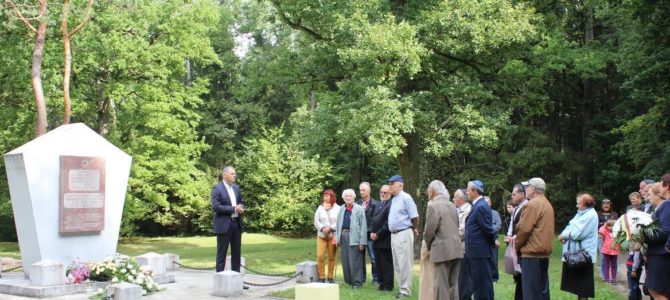
Gathering in the Pivonija grove in Ukmergė on Sunday, September 4, 2016
Program
12:00-12:45 Commemoration of Holocaust Victims: minute of silence, introductory speech by Ukmergė Jewish Community chairman Artūras Taicas, presentation of Tolerance Center by director Vida Pulkauninkienė, statements by participants;
12:45 Meeting of participants at Big Stone Restaurant, Kauno street no. 5, Ukmergė: snacks and coffee or tea, presentation of mobile app Discover Jewish Lithuania;
2:00-2:20 Short tour of Old Town, end of event.
Hope for Change in Lithuania
by Dr. Efraim Zuroff
Let us all hope that the new spirit on display in Moletai will mark the beginning of a new era in Lithuania.
MOLETAI, LITHUANIA – If anyone had told me prior to this week’s Holocaust memorial event here that numerous people from all over the country, the majority of whom were ethnic Lithuanians, would participate, I would have considered them delusional. Yet that is precisely what took place earlier this week here in Moletai (Malyat in Yiddish), where at least 3,000 persons, the majority of whom are not Jewish, marched about two and- a-half kilometers from the center of town to the main site of the mass murder of 2,000 Jewish residents of Moletai exactly 75 years ago.
The fate of Moletai’s Jewish community was exactly the same as that of all the provincial Jewish communities of Lithuania, which together included approximately 100,000 Jews and were virtually totally annihilated during the summer and fall of 1941 by the Nazis, with the active participation of numerous local collaborators from all strata of Lithuanian society. Until recently, this latter fact was rarely acknowledged by the country’s leaders, and certainly never sufficiently emphasized, neither in the school curriculum nor even at Holocaust memorials.
On the contrary, Lithuania was one of the most active promoters of the canard of equivalency between Nazi and Communist crimes, and state-sponsored research organizations focused almost exclusively on the latter, virtually ignoring the former. In addition, much effort was invested to enlist European support for a joint memorial day for all victims of totalitarian regimes, which undermines the uniqueness of the Holocaust and might very well jeopardize the future of International Holocaust Remembrance Day.
Yet despite the ostensibly overwhelming odds against historical truth regarding the Holocaust, the participation of so many mostly young Lithuanians in the march at Moletai is proof that positive changes are taking place in this largest of Baltic republics.
Full story here.
![]()
Tzvi Kritzer: I Was Horrified No One Would Remember the Mass Murder of Molėtai
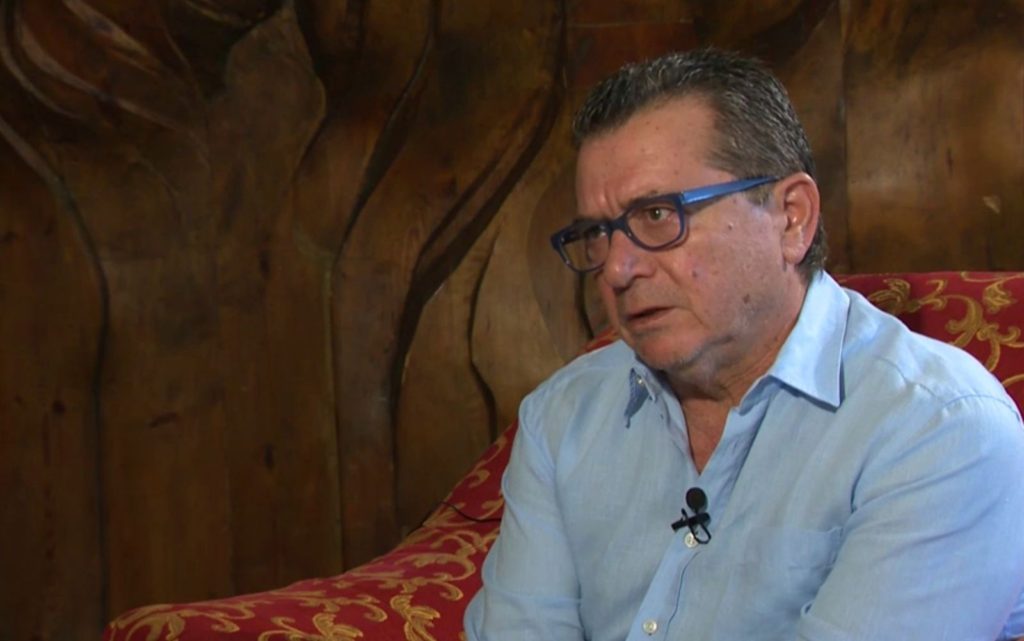 by Karolis Kaupinis, Lithuanian Radio and Television show Savaitė, from 15min.lt
by Karolis Kaupinis, Lithuanian Radio and Television show Savaitė, from 15min.lt
There’s a street in Molėtai along which 2,000 unarmed people, the town’s Jews, were led to their deaths 75 years ago. The mass grave now lies on the edge of town, although it’s difficult to call the location a grave site. Relatives of the murdered flocked to Molėtai Monday from around the world to join a procession along the route to the mass murder site.
Writer and director Marius Ivaškevičius invited Lithuanians to join the march. “You don’t have to do anything, just walk several kilometers through the town of Molėtai together with our Jews. To be silent, together, to look one another in the eyes. I have almost no doubts someone will cry, because such scenes are moving. Someone among them, someone from our side. And that’s enough. Just that, to show them and ourselves we are no longer enemies,” Ivaškevičius wrote. The LRT TV program Savaitė interviewed Tzvi Kritzer, an organizer of the march who was born in Vilnius in 1973 and moved to his Israel with his parents at the age of 17, about the event in Molėtai on August 29.
Could you tell us briefly the story of your family who lived in Molėtai?
My father lived in Molėtai with his parents and two brothers. We had more relatives there, aunts, uncles. They owned a bakery where they made bagels. Even today when we were filming a film in Molėtai and talking with many of the old-time residents of Molėtai, many of them remembered there was this very famous bakery which made especially delicious bagels, but which is now gone.
Full interview in Lithuanian here.
Kaunas Jewish Community Marks 75th Anniversary of Petrašiūnai Mass Murder and Intellectuals Aktion
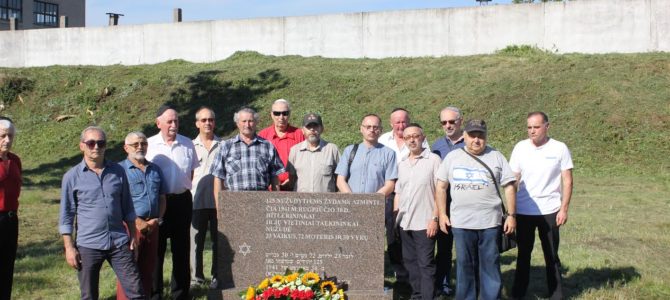
The Kaunas Jewish Community marked the 75th anniversary of the mass murder of the Jews of Petrašiūnai and the Intellectuals Aktion at the Fourth Fort in Kaunas. Lithuanian ambassador for special assignments Dainius Junevičius, his wife, representatives from the Kaunas municipality, residents of Petrašiūnai who witnessed the mass murder and members of the Kaunas Jewish Community honored the Holocaust victims. Community chairman Gercas Žakas and Junevičius both spoke of the Holocaust as a shared tragedy for all citizens of Lithuania. Iseris Šreibergas, the chairman of the Kaunas Hassidic Religious Community and a member of the Kaunas Jewish Community board of directors, honored the memory of the dead with a prayer.
Antanas Sutkus and His Photographs of Holocaust Survivors
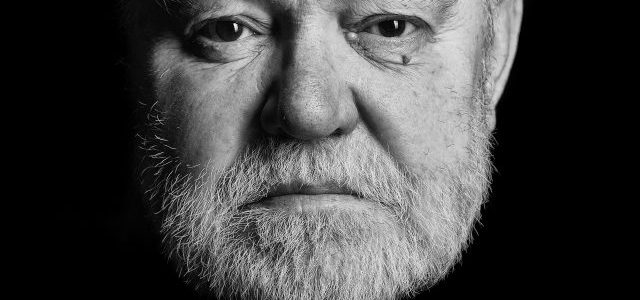
Antanas Sutkus, 2014. Photo by Jurga Graf
A little more than a month from now renowned Lithuanian photographer Antanas Sutkus will exhibit his photos of Holocaust survivors at the White Space Gallery in London. Most of the works come from his series of two decades ago called “Pro memoria: gyviesiems Kauno geto kankiniams” [In Memoriam: Living Martyrs of the Kaunas Ghetto]. The photographer says we must not forget the Holocaust and discussion of it is needed today more than ever.
Izabelė Švaraitė conducted an interview with the artist.
Your grandparents told you about the Holocaust. What did they say?
Village people didn’t talk much. But they very severely condemned and felt deep disgust for those Lithuanians who shot, transported and guarded Jewish prisoners.
In the catalog for your exhibit “Pro memoria: gyviesiems Kauno geto kankiniams,” the writer Alfonas Bukontas wrote you feel shameful about what happened in the Kaunas ghetto and Ninth Fort. Why do you feel ashamed?
The Holocaust isn’t some sort of ordinary crime. It was the highest metastasis of Naziism. Consider, for example, I live at home and a family of guests comes to me. At night bandits come threatening to murder me, and take them out in the yard and shoot them. Among the murderers is maybe a neighbor of mine. Although I didn’t shoot these people, and I didn’t have an association with those bandits, the scene would be burned into my eyes for the rest of my life.
I would say I feel sorrow and contrition that some many people died in Lithuania. Practically all the Jews in the country were shot… If Lithuania had come to the aid of Herkus Mantas [during the Prussian uprising of 1260 to 1274) or if Lithuania had saved its Jews, we would have progressed very far as a state.
Full interview in Lithuanian here.
GlassJazz International Symposium in Panevėžys
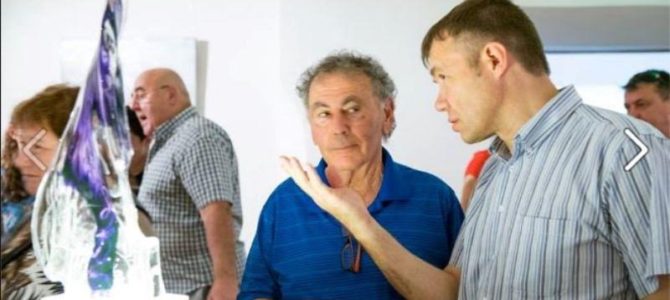
The GlassJazz project/symposium was held in Panevėžys August 23. It is the only place in Lithuania, and perhaps all of Europe, where artistic glass meets jazz music. “Glass is unique, it can be improvised just like jazz. Improvising in the medium you can get indescribable forms. Jazz is like a meditation which stimulates artists to liberate themselves, to dive into creative thought, to experiment and look for unexpected forms,” GlassJazz initiator and glass artist Remigijus Kriukas said. He’s the director of the Glasremis artistic glass studio.
Participants from 16 countries attended the event at the Kupiškis Ethnographic Museum. The exhibit included 30 glass works of art.
The event was kicked off by Israeli artist Louis Sakalovsky’s exhibit of glass works and paintings called Return, named in honor of his parents and all his relatives who lived in Panevėžys and Kupiškis before the Holocaust. His mother and her relatives made aliyah to Israel before the war and all his father’s relatives were murdered in Panevėžys and Kupiškis.
Book about Ona Šimaitė, Righteous Gentile

Epistolofilija by Julija Šukys. Biography of Ona Šimaitė. Translated from English by Marius Burokas. Lietuvos rašytojų sąjungos leidykla, Vilnius 2016. 256 pages

Full story in Lithuanian here
Kaunas Jewish Community Volunteers Clean Up Seventh Fort
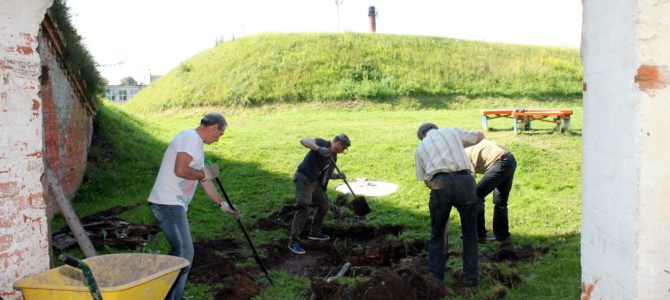
A group of Kaunas Jewish Community members responded again to a call from the Seventh Fort for volunteers to clean up the area around the Kaunas military fortification. They collected trash littering the Holocaust mass grave site where a commemorative monument is scheduled to be set up in September in memory of the Jews murdered at the Seventh Fort.
Happy 95th to Chasia Španerflig!
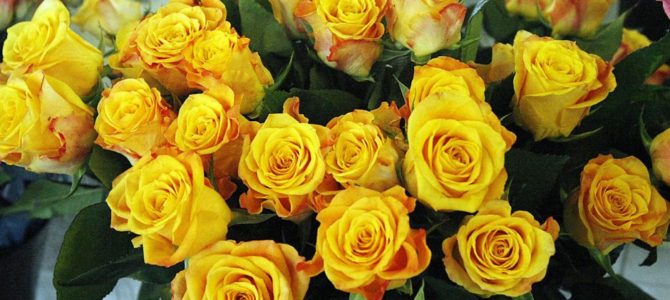
The Lithuanian Jewish Community wishes Chasia Španerflig a happy 95th birthday. Chasia was a ghetto prisoner and partisan fighter in World War II. Currently she is ill, so we wish her a full recovery and a very happy birthday!
LJC Chairwoman Faina Kukliansky on the Annihilation of Jewish Communities in the Lithuanian Shtetls
In the final days of August we mark the 75th anniversary of the extermination of the large Jewish communities who once lived in the Lithuanian shtetls (small towns). Neither the shtetls nor the Jews survived the brutal mass murder. For 75 years no one has spoken Yiddish any longer in those small towns. No one celebrates Sabbath, the synagogues are boarded up or are now storehouses or workshops. What does this anniversary mean to the Jews and the shtetls of Lithuania?
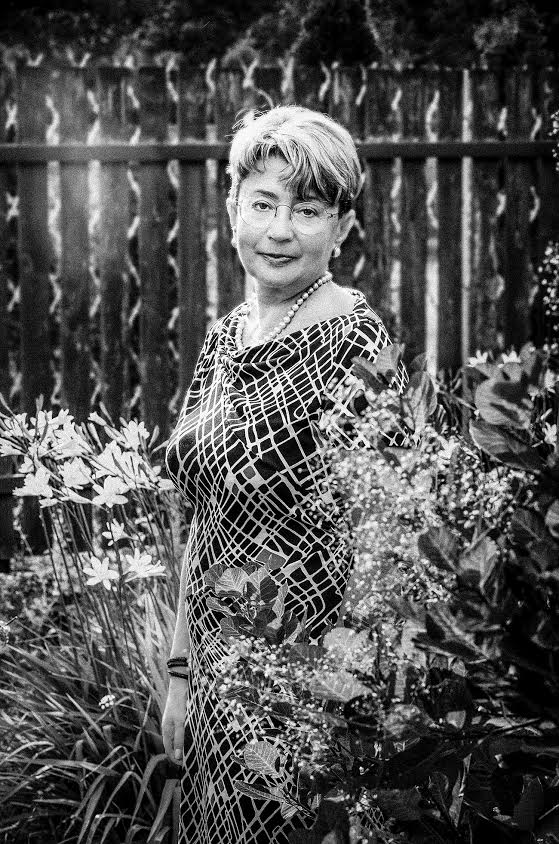
We mark the anniversaries because the people are no longer with us. Those who still remember the Holocaust must mark the anniversaries of the mass murders, otherwise the small towns will forget entirely the murder of their Jewish neighbors, including men, women and children. Lithuanian society as a whole–and not without a lot of effort by the Jewish community–twenty-five years after Lithuanian independence has all of a sudden remembered that there were Jews here, and their contribution to everything we have in Lithuania today is huge. Jews created and built the centers of these small towns. They are no longer, or they are very few, and what will the old-timers in these towns tell their children and grandchildren?
After World War II Jews maintained the keyver oves tradition (from Yiddish keyver, “grave,” + oves “parents, ancestors”) where Jews would visit the mass murder sites where their relatives were buried, to remember them. They used to do it on exactly the anniversary of the day when the Jews of that shtetl were exterminated. I remember from my childhood how we used to go visit our murdered grandparents, and how others went to visit their murdered sisters, brothers and parents. No one marched in a procession, there were no marching bands playing. Keyver oves was a sad occasion. People were repentant, they cried and they prayed, hoping it such atrocities would never happen again. They went to the mass murder sites, of which there are 240 in Lithuania, not to give speeches. What else can be said after all these years? They gathered not to talk, but so that the town community would think about where they lived and with whom they lived, and so that they wouldn’t be ashamed to look their children and grandchildren in the eye. You cannot hide the truth, after all. You don’t need popular novels, and large print-runs cannot replace open communication about what happened. Everything was known long ago. It’s not the Jews who need public commemorations, we already know it all, for us it is sufficient to stand and to pray. Telling the truth and talking sincerely and openly is needed in every small town where Jews lived before the war.
The Road to Death (75th Anniversary of the Murder of the Jews of Molėtai)
Attorney Kazys Rakauskas sent the following to the Lithuanian Jewish Community webpage.
On central Vilniaus street in Molėtai the flowers bloom and the brightly-painted kindergarten greets the eye of passers-by. The bridge next to the statue of St. Nepomuk is also festooned with garlands of flowers. Small fish flash in the sun in the pure lake water flowing into the river. Cars quietly pass and young people flex their muscles on bicycles. The people of Molėtai hurry to work on foot.
They are a different generation of people. Even their parents only heard vaguely of the terror, tears and suffering which once overtook this street. Seventy-five years ago hundreds of Jews of Molėtai realized where they were being taken at this bridge. They threw their things they had taken with them when they were removed from the synagogues under armed guard into the Siesartis river. This street leading from the three synagogues on Kauno street became the road to death for two thousand people. They had been held prisoner there [in the synagogues] for days without food or water.
March to Commemorate Murdered Jews of Molėtai, Lithuania on August 29
A march to commemorate the 75th anniversary of the mass murder of the Jews of Molėtai is scheduled for August 29 in Molėtai, Lithuania.
There will be a conference and exhibit at the Molėtai Art Gallery at 3:00 P.M.
A procession will then walk down Vilniaus street in Molėtai at 4:00 P.M.
Unveiling of a monument by Davidas Zundelovičius follows at 5:00 P.M. at the mass murder site and mass grave of the Jews of Molėtai. Teachers Ela Pavinskienė and Roza Bieliauskienė of the Sholem Aleichem Gymnasium in Vilnius have organized an exhibit about cleaning up the old Jewish cemetery in Molėtai with photographs by Yehuda Vagner and Maceva volunteer Marius Lukoševičius.
Holocaust Commemoration in Biržai August 28
A series of events in Biržai, Lithuania, to commemorate the Jewish community murdered there during the Holocaust are scheduled to begin at 11:00 A.M. on August 28. The events include an initial “March of the Living”-type procession culminating in a conference and discussion. For more information, contact Sania Kerbelis at 370 698 85131 or Simona Ražinskienė at 370 699 03023. There is a possibility those needing a ride from Vilnius might be able to get one provided by the Lithuanian Jewish Community; contact info@lzb.lt to find out.
Rabbi Ben Tzion Zilber Visits Latvia and Lithuania

Rabbi Ben Tzion Zilber, son of legendary Rabbi Yitzchok Zilber, visited Latvia and Lithuania August 15 and 16.
Rabbi Kalev Krelin of the Vilnius Jewish Community escorted Rabbi Zilber to locations where the latter’s ancestors lived. His father Rabbi Yitzchok Zilber belonged to a long line of scholars and suffered under Stalin, both at labor camps and under the atheist policies of the Soviet Union. Despite extremely difficult circumstances, Rabbi Yitzchok Zilber not only managed to hold steadfastly to his faith in the Creator and to keep His laws, but also to deepen his Torah study and teach others. After making aliyah to Israel Rabbi Yitzchok Zilber had hundreds of followers in whom he inspired faith in the Creator and adherence to the Torah.

